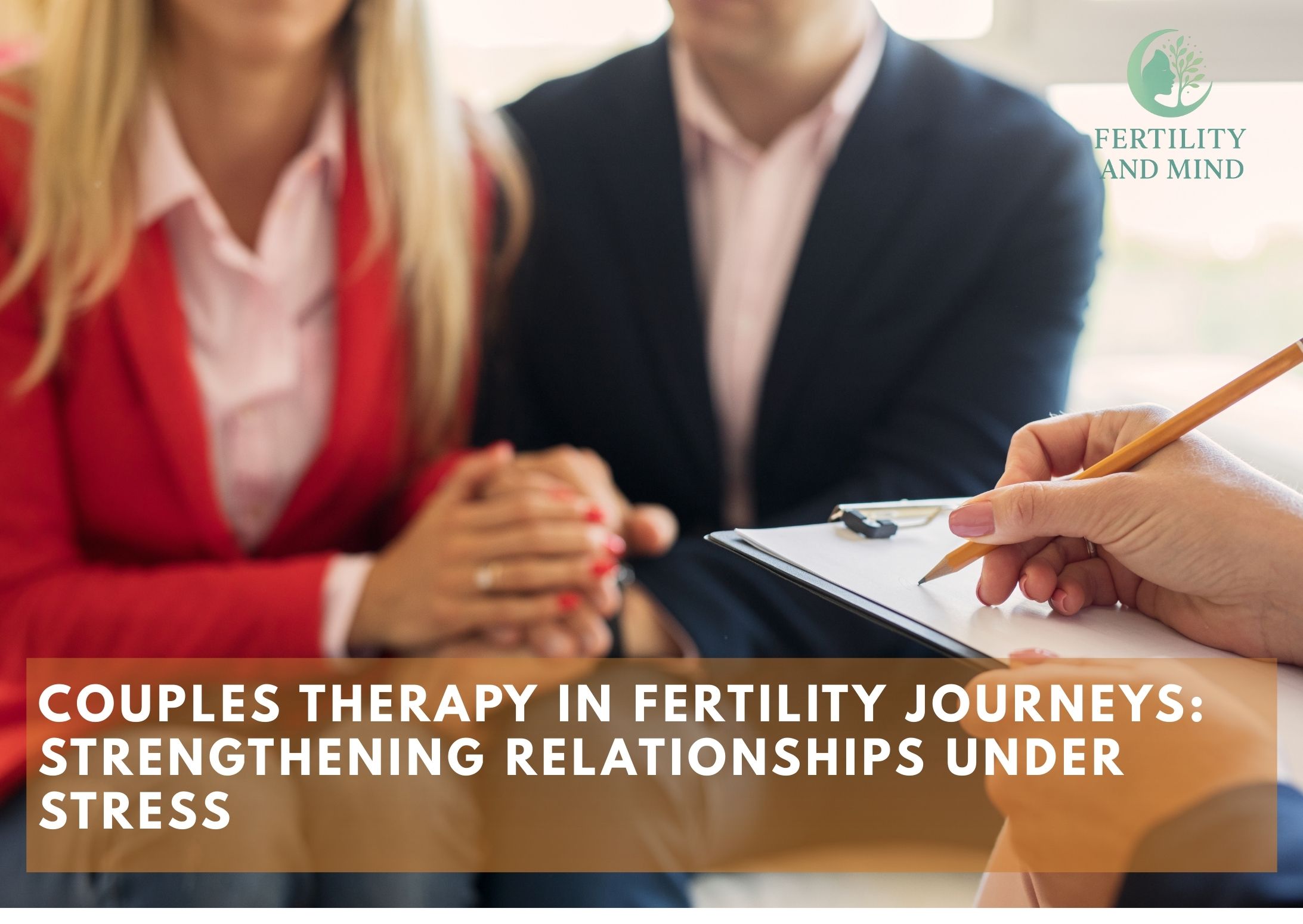
Fertility treatments don’t only affect individuals they deeply impact relationships. Couples often face fertility journey emotional challenges, including stress, blame, and communication breakdowns. These struggles can be intensified by anxiety during IVF treatments, mood swings from medications, and the constant uncertainty of outcomes.
This is why couples therapy has become an essential tool in psychological support for infertility, helping partners strengthen bonds and navigate the journey together.
The Emotional Strain of Infertility on Relationships
Stress and Communication Issues
Infertility can create tension between partners. Stress, combined with disappointment after unsuccessful cycles, may lead to arguments, blame, or emotional distance. Coping with infertility stress as a team becomes harder when both partners experience infertility depression and mood swings. To better understand how these emotional struggles develop, see our article on The Emotional Impact of Infertility: Understanding Stress, Anxiety, and Depression
The Role of Stress Hormones in Relationships
Elevated stress hormones like cortisol not only affect the body but also influence patience and empathy within relationships. High anxiety often reduces intimacy and makes conversations about treatment more difficult.
How Couples Therapy Helps
Building Healthy Communication
Therapists provide tools to express fears, frustrations, and expectations constructively. Infertility counseling and therapy often includes sessions for both partners to improve listening skills and reduce blame.
Shared Coping Strategies
In therapy, couples learn fertility process stress management techniques they can practice together. For example, relaxation techniques for IVF patients such as mindfulness or breathing exercises become more powerful when both partners participate.
Strengthening Emotional Connection
Cognitive-behavioral therapy (CBT) for infertility can be adapted for couples, helping them reframe negative thoughts as a team. Instead of focusing on failure, they develop resilience and maintain hope together.
Practical Self-Care for Couples
- Mindfulness and fertility outcomes: practicing mindfulness together improves patience and reduces conflict.
- Daily check-ins to share emotions without judgment.
- Scheduling time for non fertility related activities to maintain relationship balance.
- Participating in support groups designed for couples going through fertility treatments.
When to Seek Professional Help
It’s normal for relationships to face stress during fertility treatments. But when communication consistently breaks down, intimacy disappears, or emotional distance grows, it’s time to seek help from fertility clinic mental health services. Professional intervention ensures that the relationship doesn’t collapse under the pressure of infertility.
Conclusion
Fertility journeys are tough, but they don’t have to break relationships. With the help of couples therapy, open communication, and shared stress reduction in infertility strategies, partners can transform a difficult experience into one of resilience and unity.
In my perspective, making decisions together with your partner and guided by a psychologist is one of the most effective ways to reduce anxiety and strengthen emotional bonds during fertility treatments.

